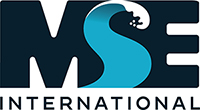CLINSH clean inland shipping project update

The CLINSH (Clean Inland Shipping) project aims to demonstrate that harmful emissions from inland ships can be reduced. MSE International is a partner in this European project which is funded by the European LIFE programme.
After three rounds of tendering, the project recruited 43 inland vessels of which 14 are being fitted with greening technologies and the others are testing and using a variety of techniques and fuels like GTL, LNG and HVO. The effect of different emissions mitigation technologies is being continuously monitored on the fleet of 43 vessels and the data analysed will inform the future policy of local, regional, national and international authorities and bodies.

To find more about the process, testing and results measuring please click here.
CLINSH participant Van der Meulen Woudsend converted their 49.50-metre crane ship 'Triton' into a hybrid ship, which now emits 99 percent less soot, 16 percent less CO2 and 98 percent less nitrogen. The conversion was made possible by the European CLINSH project with a subsidy of EUR 150,000. More information can be found here.

Currently all the data collected is being analysed and emission factors and scenarios are being developed. The end results will be presented at the CLINSH conference on 30th September 2021.
In November 2020 the VVD Member of the European Parliament Caroline Nagtegaal-Van Doorn presented a European plan for inland navigation on behalf of Renew Europe, the Liberal Group in the European Parliament; the Strategic Agenda for a Future-proof Inland Navigation in Europe. The report advocates support for inland navigation to go beyond the current programmes. It wants European policy to bring about a substantial modal shift; moving large amounts of cargo from road to water, 'reducing CO2 emissions and creating fewer traffic jams. For more information click here.
MSE International is leading the work package concerned with Onshore Power Supplies (OPS).


